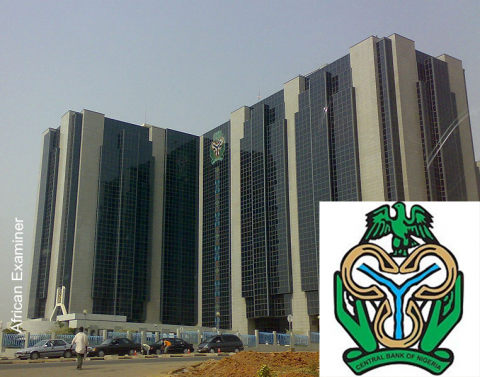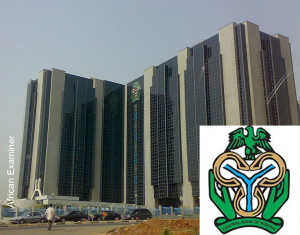CBN Issues Guidelines On E-Payment Of Salaries, Pensions
Business News Wednesday, March 12th, 2014
The Central Bank of Nigeria (CBN) on Tuesday rolled out guidelines in respect of the end-to-end electronic payment of salaries, pensions, suppliers and taxes initiative in alignment with the care objectives of National Payment System Vision 2020.
 The objective of the payment system is to ensure availability of safe and effective mechanisms for conveniently making and receiving all types of payments from any location and at anytime through multiple channels.
The objective of the payment system is to ensure availability of safe and effective mechanisms for conveniently making and receiving all types of payments from any location and at anytime through multiple channels.
The CBN aims at reducing the time and costs of transactions, minimize leakages in government revenue receipts and also provide reliable audit trails thus making the payment system comply with global payment standards.
According to a circular posted on the apex bank’s website dubbed: “Guidelines on Electronic Payment of Salaries, Pensions, Suppliers and Taxes in Nigeria”, the CBN listed all public and private sector organizations who maintain relationship with employees, pensioners, suppliers and taxpayers as being relevant stakeholders required to work together for the success of the electronic payment initiative.
Paying organizations, the circular said, should maintain e-payment enabled account with banks or other financial institutions, adopt a bank approved end-to-end electronic payment platform for all forms of salaries, pensions, suppliers and taxes payment, provide basic infrastructure for making and receiving electronic payments; and ensure employees are given basic training to use adopted platform, among other responsibilities.
Payment beneficiaries, especially employees shall maintain e-payment enabled bank accounts with banks, other financial institutions or any other approved channel for receiving payments such as mobile money/electronic wallet subject to the bank’s approved know your customers (KYC) limits.
Employees, the CBN said, must provide correct and contact details to the paying organization and report cases of non-payment, delayed payment or wrong payment of salaries carried out on a bank approved platform, to the paying organization.
According to the CBN, all pensions shall maintain e-payment enabled bank account with either bank or financial institutions, report cases of non-receipt, delayed receipt or wrong receipt carried out on a bank approved e-payment platform to the paying organization.
In the same vein, suppliers are expected to open channels like bank accounts or in any other financial institutions for receiving payments and obtain/provide details of Tax Identification Number (TIN) among other requirements.
Banks and other financial institutions are expected to provide the adoption of the electronic payments by stakeholders covered in the guidelines the CBN, adding that they should process Electronic payment systems and clearing house rules and maintain/make available on a periodic basis, report of all electronic payment transactions processed.
“Any dispute, controversy or claim arising out of or relating to this guidelines or the breach, termination or invalidity thereof shall be settled in accordance with the bank’s dispute resolution mechanism and if unresolved may be referred for arbitration of the Regional Centre for International Commercial Arbitration, Lagos, Nigeria,” the CBN noted.
The implementation at end-to-end electronic payment of all forms of salaries, pensions, suppliers and taxes actually commenced in January 2012 and it affects organizations with more than 50 employees.
It means payment instructions and associated schedules were no longer to be transmitted to banks by all public and private sector organizations through unsecured channels such as paper-based mandates, flash drives compact discs (CD) and email attachments.
However, compliance monitoring and enforcement, the CBN clarified would be in stages, to enable stakeholders have ample time to adjust to the new payment model.
For public sector organizations, compliance, monitoring and enforcement will commence from January to December 2014 for ministries, departments, and agencies in Abuja, cash-lite states, Lagos, Abia, Anambra, Kano, Ogun, Rivers and Federal Capital Territory (FCT) Abuja. It will also affect other states and local government areas.
Private sector organizations compliance, monitoring and enforcement in phase one and two cash-lite states, Lagos, Abia, Anambra, Kano, Ogun, Rivers and FCT will be June 2014, while in other states, their enforcement will take effect from June to December 2014.
For infractions and sanctions, banks which hinder electronic payment into a beneficiary’s accounts for instance, will be sanctioned with a penalty of N50, 000, while banks which could not consummate all electronic payments transactions within two hours would be sanctioned with a N50, 000 penalty.
In the same vein, e-payment solution system and service providers which provide e-payment solution or services without obtaining CBN licence shall not be issued licence at all by the apex bank with effect from the date such infraction is committed.
Related Posts
Short URL: https://www.africanexaminer.com/?p=9019




















